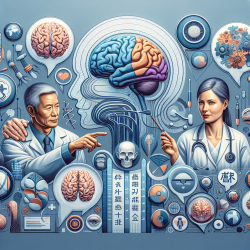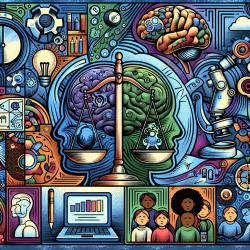Introduction
Motivational interviewing (MI) is a crucial skill for medical practitioners, enhancing patient engagement and facilitating positive behavioral changes. However, integrating MI training into medical curricula can be challenging due to time constraints. A recent study, "Motivational interviewing skills practice enhanced with artificial intelligence: ReadMI," explores how artificial intelligence (AI) can augment MI training, offering promising insights for practitioners aiming to refine their skills.
The Role of AI in MI Training
The study introduces ReadMI, a software-based training tool that leverages AI to assist medical students in mastering MI techniques. By using deep-learning-based speech recognition and natural language processing, ReadMI provides real-time feedback on various MI-relevant metrics, such as the ratio of open to closed questions and the use of reflective statements. This AI-human collaboration not only reduces the cognitive load on facilitators but also enhances the learning experience for students.
Key Findings from the Study
The study involved 125 third-year medical students who participated in MI training sessions. Students were divided into intervention and control groups, with the former receiving both facilitator feedback and ReadMI metrics. The results were telling:
- Students in the intervention group significantly increased their use of open-ended questions and reduced their reliance on closed-ended questions compared to the control group.
- The intervention group also demonstrated a higher ratio of open to closed questions, indicating improved conversational skills.
- Overall, the use of AI in providing immediate, quantitative feedback was shown to be beneficial in enhancing MI skills.
Implications for Practitioners
For practitioners seeking to improve their MI skills, incorporating AI tools like ReadMI can be transformative. These tools offer several advantages:
- Immediate Feedback: Real-time metrics allow for quick adjustments and learning, reducing the need for extensive post-session reviews.
- Enhanced Learning: Quantitative data supports subjective feedback, providing a more comprehensive understanding of one's performance.
- Time Efficiency: AI tools streamline the training process, making it feasible to integrate MI training into busy schedules.
Encouraging Further Research
While the study provides compelling evidence for the benefits of AI in MI training, further research is encouraged to explore its long-term impact on skill retention and patient outcomes. Practitioners are urged to stay informed about advancements in AI applications within medical education and consider participating in studies that evaluate these technologies.
Conclusion
The integration of AI into MI training represents a significant advancement in medical education. By providing immediate, data-driven feedback, tools like ReadMI can enhance the effectiveness of MI training, ultimately leading to better patient outcomes. Practitioners should consider leveraging these technologies to refine their skills and contribute to the ongoing evolution of patient-centered care.
To read the original research paper, please follow this link: Motivational interviewing skills practice enhanced with artificial intelligence: ReadMI.










